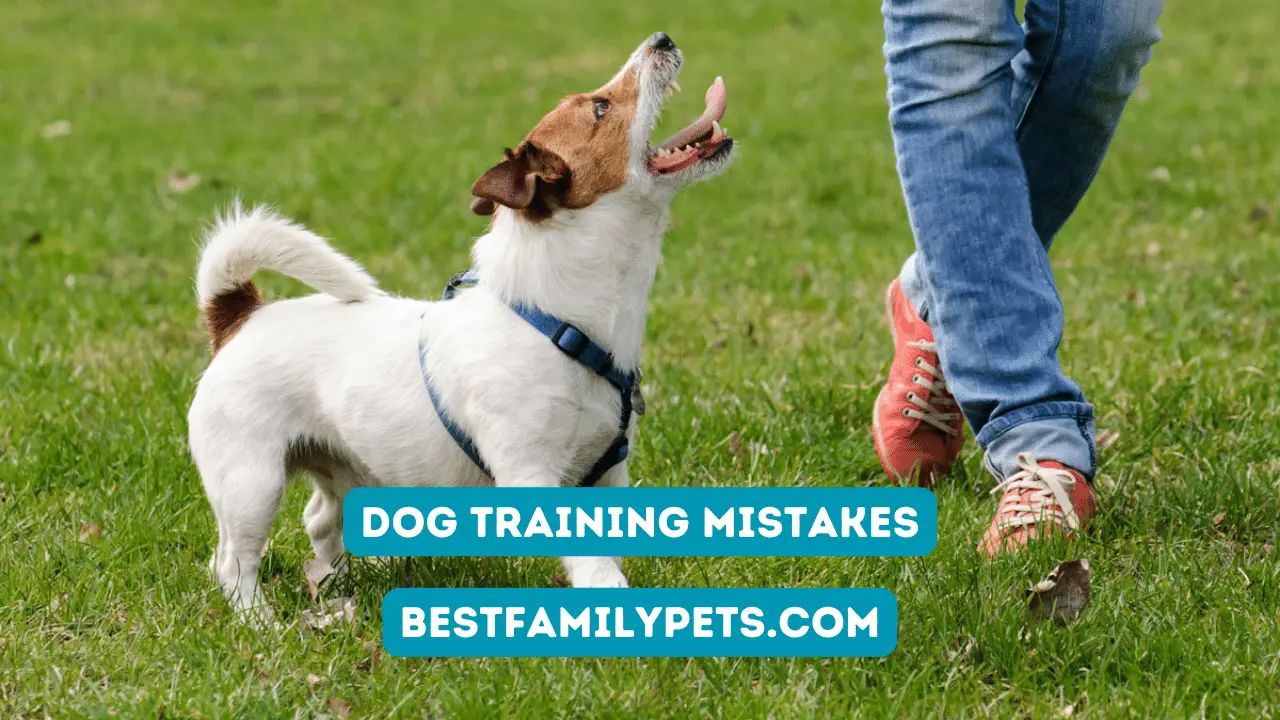5 Most Common Dog Training Mistakes
Avoid these 5 common dog training mistakes and unleash your pup’s full potential. Learn how to train like a pro today!
So you’ve accepted the challenge of training your dog. Congrats! You’ve taken your first step towards having a more rewarding and solid relationship with your dog.
While it’s great that you’re trying to become a responsible dog owner, you will surely face a lot of mishaps that might slow down your progress and discourage you. So in this article, expert dog trainers at Delaware K9 Academy will share the most common dog training mistakes that people make so you can avoid them.
1. You didn’t start early with dog training.
The younger your dog, the better. You should start the training as soon as you brought your pup into your home.
Don’t wait until your dog gets older and develops undesirable habits that can be difficult to break. Remember, your primary goal in dog training is to mold its behavior and teach it how to follow commands.
Although puppies might not be able to learn advanced skills right away, it’s recommended to start teaching it the basic commands and some house training. The plus side of this is that as you spend a considerable amount of time with your dog, you’re also forming a stronger and deeper connection with it as it grows old.
2. You are not training your dog enough.
Dog training requires commitment. It’s not just a one-off task that you do. The more consistent you train your dog, the higher the chance that it will master the command or learn a specific desirable behavior.
So choose one skill that you want your dog to learn and conduct short, productive training sessions on a regular basis for about two to three weeks. Sure, you can explore other skills to teach, but it’s advisable to revisit the basics from time to time as well.
3. You are impatient.
Aside from the fact that dog training generally takes time, the pace by which dogs learn also varies significantly. So if your dog is not catching on to a specific skill that you want it to learn, try not to get frustrated and stressed as this will only make it more difficult for your dog to learn.
If you notice that your dog is struggling, consider different factors such as the presence of distractions, the length of the session, or the mental and physical condition of your dog at the moment– is it hungry, sick, or sleepy?
Keep in mind that dogs have limited attention span. So if the training session has been long enough to the point that your dog is losing interest and focus, it’s time to wrap things up and continue at another time. Generally, dog training sessions should last for only 10 to 15 minutes at a time.
4. You are implementing strict discipline.
Ethical dog trainers would agree that punishment is not an effective way to train your dog. Instead of punishing it, you might want to encourage positive behaviors by providing positive reinforcements or rewards such as tasty treats, verbal praises, and cuddles.
Harsh discipline in the form of yelling, hitting, or leash jerking can provoke aggressive behavior or cause it to become fearful, not to mention that it can physically hurt your dog. If you believe that strict discipline is necessary to assert your dominance, you’re getting it all wrong. Positive training is what will help you earn your dog’s respect and loyalty.
5. You accidentally reinforce negative behaviors.
Yet another common mistake that dog owners make is that they accidentally reinforce wrong behaviors.
One example is comforting your dog when it’s afraid by letting it enter the house when it barks non-stop. We understand that you mean well. However, giving attention when it shows an undesired behavior somehow tells your dog that a specific action is good because doing it leads to a positive thing that it wants. In this example, barking non-stop leads to being allowed to enter the house and being comforted.
Many dogs even continue negative behaviors even if it elicits a negative reaction from you. For them, even negative attention is better than none at all. So one tip is that if your dog is doing something bad, deny attention until it stops doing it.
However, you should also be discerning because for other undesirable behaviors such as chewing on furniture, ignoring it is not the best approach. What you can do in such cases is to redirect its attention to other healthy activities such as training exercises or playing with chew toys.
Final Thoughts
In dog training, consistency is important. So if ever you find yourself too busy to continue your regular training sessions, or you think your training is not working, you might want to seek the help of professional dog trainers.
Delaware K9 Academy offers puppy training, private classes, and 2-week dog training boot camps, depending on your goals. Not sure which one suits your needs best? Get in touch with them today!


